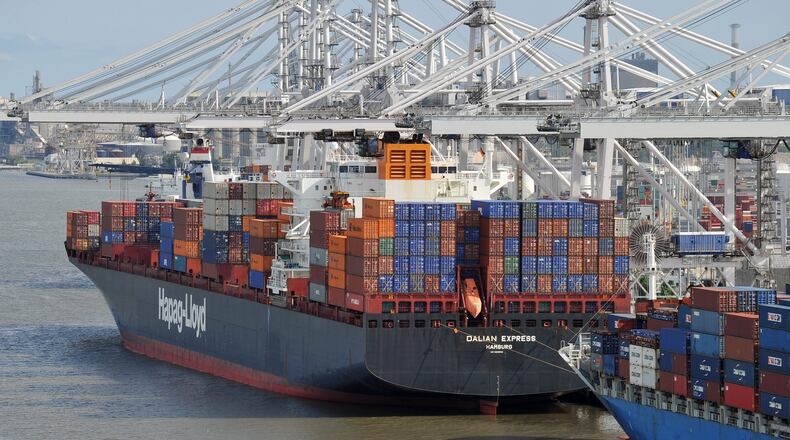The expected completion of the reworked North American trade deal is a step toward more business for Georgia, a top U.S. trade official assured company executives in Atlanta on Monday.
The United States-Mexico-Canada Agreement – USMCA – is still months from implementation, but the deal is a welcome reboot of the current rules under the North American Free Trade Agreement, said Joseph Semsar, acting under secretary of the International Trade Administration.
“When NAFTA was negotiated, we were still using floppy discs and the phones that you are holding today were considered supercomputers,” he told about 15 Georgia executives at the Metro Atlanta Chamber.
President Donald Trump is expected to sign the agreement on Wednesday. Canadian approval is anticipated in the weeks after that. The three countries are also required to notify each other of various steps — including protection of labor rights and the environment, a process that will likely mean months to go before final completion late this year.
The North American pact is part of a more aggressive effort to connect national interest and business, “countering our strategic competitors abroad,” Semsar said.
That includes negotiations with the European Union to manage relations after the exit of Great Britain. And it includes the sometimes rancorous talks with China that have recently produced settlement of some issues, he said.
“We believe the agreements with China, the phase one, and the USMCA, put us on a good footing,” Semsar said. China “agrees to make significant structural reforms.”
There will also be a better mechanism for resolving conflict, he said. “There is a specific dispute settlement process as part of China phase one. It’s not an ice cream cone that licks itself.”
The revised North American deal has drawn generally positive reviews from Georgia business.
Georgia is a major exporting state, with Canada and Mexico its largest export markets, according to the Georgia Department of Economic Development.
“All of it affects us,” said Don Bravaldo III, president of Bravaldo Capital Advisors, which is a consultant to companies. “The businesses hate uncertainty. And the USMCA should put a lot of uncertainty behind us.”
Some trade barriers – like regulations – are to be lowered, which benefits companies that trade with America’s neighbors. Other sectors – especially manufacturers of auto parts – are pleased that the USMCA requires that 75% of the parts used to make vehicles in the United States also be American-made.
"There's no way that the USMCA can't help," said Monica Barber, chairperson of the Georgia District Export Council, a government-affiliated group that promotes trade.
Georgia’s top trading partners
China: $26.7 billion
Germany: $12.1billion
Canada: $10.8 billion
Mexico: $10.8 billion
Japan: $7.5 billion
Note: most recent figures are from 2018
Source: Georgia Department of Economic Development
About the Author
Keep Reading
The Latest
Featured



